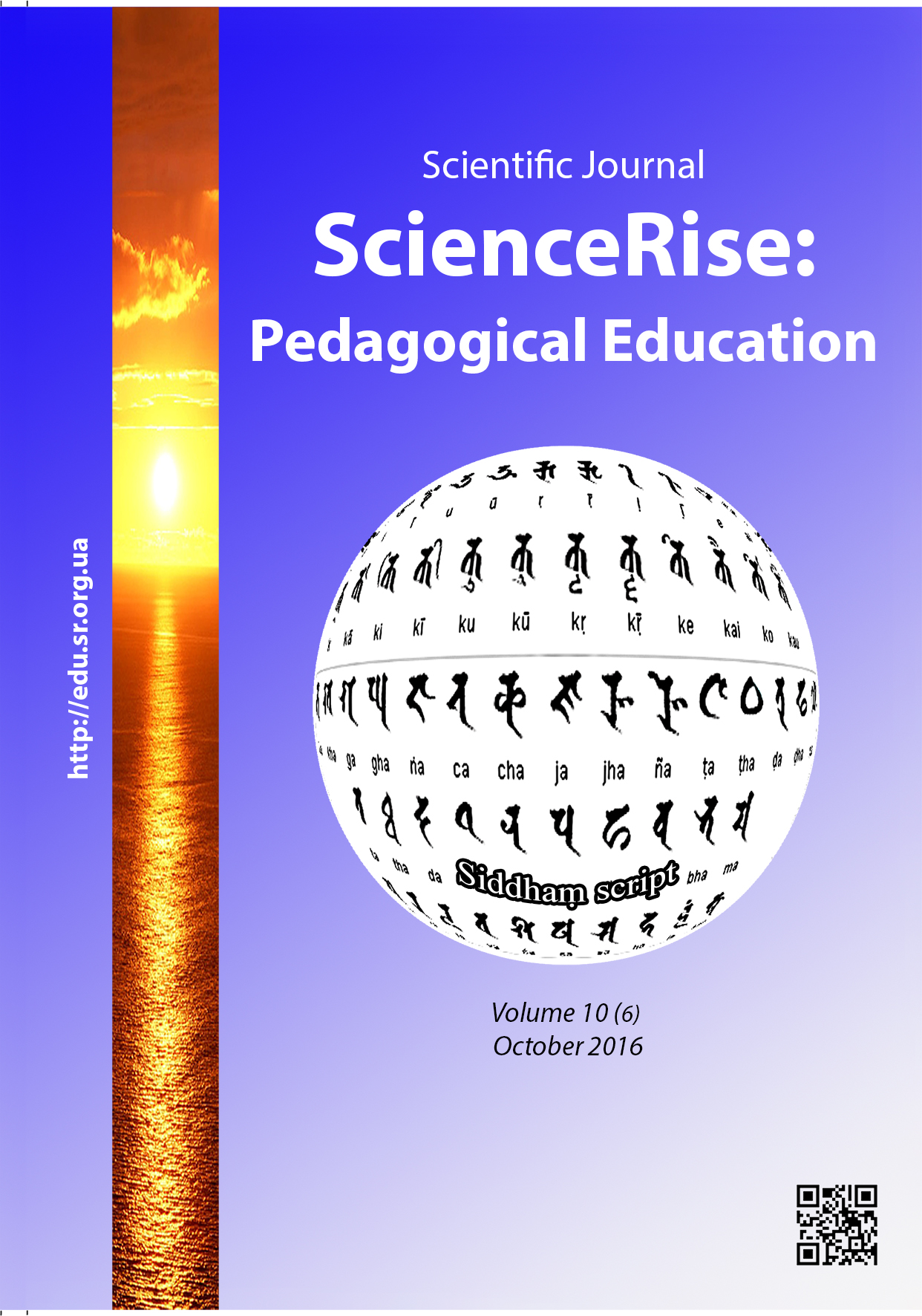Reqirements on the post of an educator of the elderly
DOI:
https://doi.org/10.15587/2519-4984.2016.80781Keywords:
The elderly, quality of life, education, counselling, educator, competencesAbstract
Education of the elderly is considered one of the ways of raising a person’s personal dignity and thus their quality of life. Perhaps the most important factor in this process is the personality of an educator. It is the educator upon whom there are many requirements for the specification which is a subject of research and discussion. Despite this fact training of educators for the elderly education and cultivations of their competences is still very neglected and underestimated in the Czech Republic.
The article deals with preparation of educators for programmes for the elderly and development of their competences in the Czech Republic with the aim to highlight the absence of unified formal preparation of the educator. The introduction of the article explains the author´s motivation for the stated topic. The next part is aimed at education of the elderly as such and its importance. The focus is on the role of the educator of the elderly and the present state of their education and development of their competences. Further, the progress of research results will be presented, which is directed at the analysis of lecturing activities of the individuals working with the elderly as well as parallel aims of stating their profession competences as a required state. The conclusion evaluates presupposed use of the results of the thesisDownloads
Published
How to Cite
Issue
Section
License
Copyright (c) 2016 Petra Kaduchová

This work is licensed under a Creative Commons Attribution 4.0 International License.
Our journal abides by the Creative Commons CC BY copyright rights and permissions for open access journals.
Authors, who are published in this journal, agree to the following conditions:
1. The authors reserve the right to authorship of the work and pass the first publication right of this work to the journal under the terms of a Creative Commons CC BY, which allows others to freely distribute the published research with the obligatory reference to the authors of the original work and the first publication of the work in this journal.
2. The authors have the right to conclude separate supplement agreements that relate to non-exclusive work distribution in the form in which it has been published by the journal (for example, to upload the work to the online storage of the journal or publish it as part of a monograph), provided that the reference to the first publication of the work in this journal is included.







